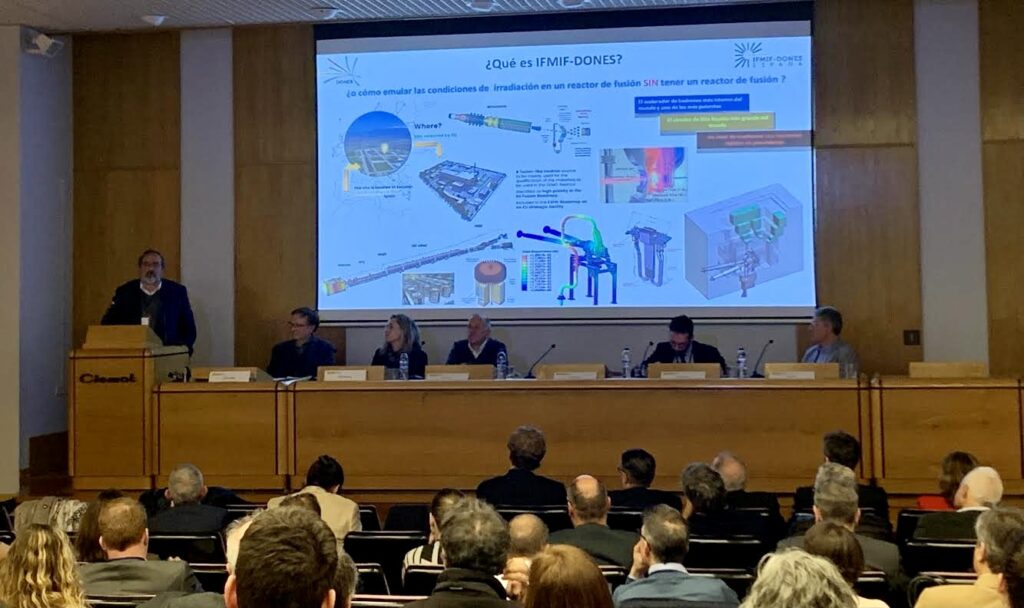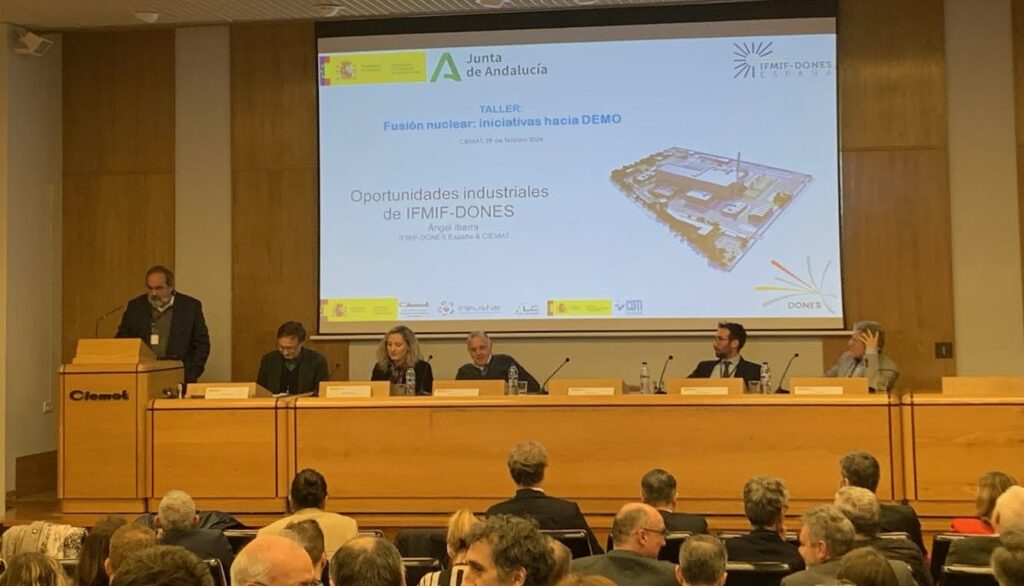Ángel Ibarra, speaker at the workshop ‘Nuclear fusion: initiatives towards DEMO’
Posted on |

The director of IFMIF-DONES España Consortium, Ángel Ibarra, participated today as a speaker at the workshop ‘Nuclear fusion: initiatives towards DEMO’, organised by CIEMAT, CDTI and Ineustar/Induciencia, with the collaboration of IFMIF-DONES, UNED, University of Seville and UPM.
During his speech, Ibarra described the industrial opportunities generated by the scientific infrastructure built in Escúzar (Granada). He also invited the attendees to participate in the 2nd R+DONES Forum, which will take place in Granada on April 10 and 11.
The workshop aimed to publicise the process initiated for the potential creation of a public-private collaboration initiative in the field of fusion; to analyse Spain’s strengths in the different key technologies; and to learn about the plans for the future DEMO reactor.
During the workshop held in Madrid, it became clear that the nuclear fusion ecosystem in Spain is a success story of public-private collaboration. Our country plays an important role both in the field of Science and Technology generation and in the generation of an industry with leading international companies in niches of high technological value, which has managed to position itself at the top of the ranking for the awarding of ITER contracts, the flagship of the European fusion roadmap. It also has unique infrastructures like the TJ-II sterallator and fusion technologies from the National Fusion Laboratory – CIEMAT and the future IFMIF-DONES.
The European strategy focused on developing ITER as a technological prototype and later DEMO as a functional prototype, demonstrating the possibility of viable electrical energy extraction from fusion. In addition, numerous private initiatives are emerging worldwide that aim to accelerate the technological development of fusion energy through ambitious privately funded programmes.
In this context, it is essential to analyse potential public-private initiatives to finance developments in critical technologies for fusion and the future DEMO reactor, such as tritium technologies, HTS magnets, remote manipulation, etc., representing a specific paradigm shift. We are beginning to transition from the current sequential model to an accelerated model where the development of critical fusion technologies is parallelised with public-private participation, which will require an adequate positioning of the Spanish industry. At the national level, initiatives are also being mobilised to position our country for the location of DEMO.

Photos: CIEMAT